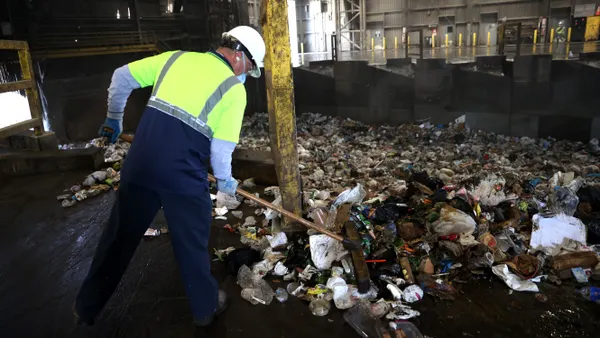Dive Brief:
- Chicago Mayor Rahm Emanuel proposed on Wednesday an ordinance which would require owners of multi-unit residential, office, and commercial buildings to provide single-stream recycling to their tenants or risk steep fines.
- Noncompliance could result in a $500-$1,000 fine for the first offense, $1,000-$2,500 fine for the second offense, and up to a $5,000 fine for further violations in a one-year period.
- While the city has required buildings with more than five units to recycle since 1993, the ordinance has rarely been enforced in the years since.
Dive Insight:
Chicago has struggled with recycling for decades. The city established a system which required residents to buy special blue bags for their items in 1995, but that was eventually canceled in 2008. Some landlords said they wanted to provide recycling but couldn't find room for a separate dumpster or weren't willing to pay for the extra costs.
In 2013, Emmanuel launched a new "blue cart" recycling program and entered into contracts with Waste Management and Resource Management to sell the recyclables at a quarterly-adjusted commodity price until 2018. The city has seen serious contamination issues since the program started, but has been working to educate residents and recently partnered with Recycle by City for a new website.
While this latest move to expand recycling may require more education, it could also introduce a large amount of new material. As reported by WBEZ, more than a third of the residential solid waste collected comes from large apartment buildings. If many of those buildings weren't participating before, their involvement now may help prove if Chicago's recycling system can work.











